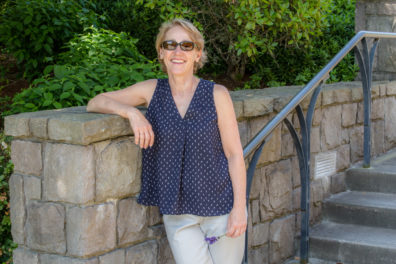
Department: Education
tnelson1@wsu.edu
Office: VUB 324
Phone: (360)-546-9663
Support Staff: Debra Barnett
Directory
ResearchGate
Curriculum Vitae
Tamara Holmlund, Ph.D. Professor, Science Education
Co-PI: The Next Generation of STEM Teacher Preparation in Washington State (funded by the National Science Foundation)
Co-PI: Columbia River Estuary Science Education and Outreach (CRESCENDO): A Landscape-scale University-High School Partnership Integrating Scientific and Educational Research (funded by Washington Sea Grant)
Coordinator: WSUV Masters in Teaching Elementary Certification Program
Washington State LASER: Steering Committee member; Lead faculty, STEM Education Leadership Institute
Research
My research interest centers on how teachers, schools, and districts conceptualize and implement STEM education. In relation to this, I look at the role of leadership networks and how interactions shape the ways in which “STEM education” is enacted. Also of interest is whether educators conceptualize STEM education as an equity pedagogy and how this manifests in classrooms and schools.
I also study the supports and challenges to science teachers’ professional learning. With the support of numerous grants from Washington State and the National Science Foundation (2003-2010), our team studied the processes and outcomes of secondary science and mathematics teachers’ collaborative learning [link to STRIDE https://labs.wsu.edu/stride/]. This involved a five-year study of the development and activities of professional learning communities.
My interest in STEM education and teacher learning intersect in a new NSF-funded project called The Next Generation of Science, Technology, Engineering, and Mathematics (STEM) Teacher Preparation in Washington State (NextGen-WA). With a goal to improve and diversify STEM teacher preparation in Washington, this is a four-year collaboration between 13 public, private, and online four-year institutions of higher education as well as numerous two-year colleges, educational institutions, and business organizations. A webinar and other information about this new project can be viewed here http://serc.carleton.edu/integrate/programs/implementation/program1/nov2016webinar.html#res
I also have a life-long interest in environmental education and student empowerment in environmental action. With the support of Washington Sea Grant and in collaboration with Dr. Gretchen Rollwagen-Bollens and Dr. Stephen Bollens, students and teachers from five high schools along the Columbia River Estuary (CRE) are studying the health of the estuary and possible relationships between human activity and water quality indicators. Our research focuses on student learning about the ecology of the CRE, their engagement in scientific practices, and their attitudes toward environmental stewardship.